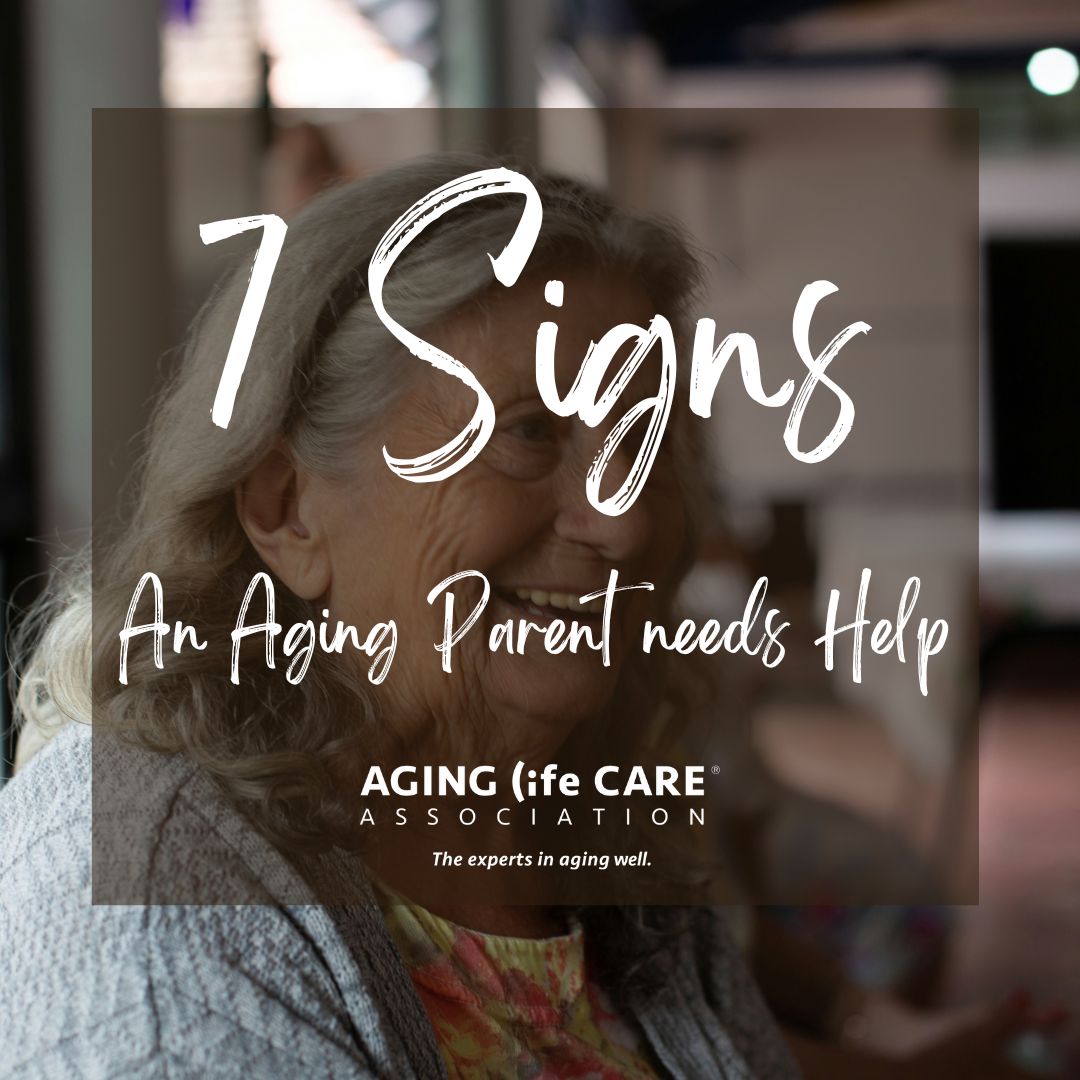Does your aging parent need help?
As an Aging Life Care™ advisor, I know how fiercely older adults want to maintain their independence. Many feel that their adult children don’t understand them or are making something out of nothing — a fall, a burnt pot, a call from the police station. They make promises to ask for help shopping, assure a son they will only drive on familiar streets, and promise to hang up when an unsolicited call for money comes in. The need to be safe and the rejection of that safety in the name of independence and dignity is a real struggle. So how do you know when safety should outweigh the desire to appear and remain independent?

Here are seven signs that your aging parent may need help:
1. You come for a visit, open the refrigerator to get a glass of juice and the expiration date was three months ago. The refrigerator may have a strong odor, and the kitchen may be full of rotten food.
2. Mail is piling up. Bills may be going unpaid, and utilities at risk of being shut off.
3. You’re not sure that medications are being taken correctly, due to changes in your parent’s vision, dexterity, or memory. Pills are still in their bottles, or medication boxes seem untouched between visits. You may find medications dropped or spilled on the floor.
4. You’re concerned about personal hygiene. You parent may be wearing soiled clothing, bathing infrequently, and not attending to personal care tasks such as oral hygiene.
5. “Mother is absolutely fine,” you hear your father say. And mother automatically agrees. After fifty plus years of marriage, they have learned how to compensate for one another, and they’re arm in arm on the road to trouble.
6. You’re receiving concerned phone calls or emails from friends or neighbors, who may be stepping in to provide help when they can, but are frustrated.
7. The car has noticeable new scratches and dents, maintenance is being ignored, and you’re concerned about your parent’s ability to drive safely.
If you notice just one of these happening with your parent, it is time to have a conversation. If you need help starting that conversation or implementing a plan of care, consider working with an Aging Life Care Professional. Aging Life Care Professionals™ understand the frustration felt by adult children and the desperation felt by older adults who want to hold on to their independence. With an objective perspective on the situation, we can help facilitate difficult family discussions and decision-making to address these and other concerns.
About the author: Miriam Zucker, LMSW, C-ASWCM is an Aging Life Care™ Specialist. She is founder of Directions in Aging, based in Westchester County, New York.
This blog is for informational purposes only and does not constitute, nor is it intended to be a substitute for, professional advice, diagnosis, or treatment. Information on this blog does not necessarily reflect official positions of the Aging Life Care Association™and is provided “as is” without warranty. Always consult with a qualified professional with any particular questions you may have regarding your or a family member’s needs.